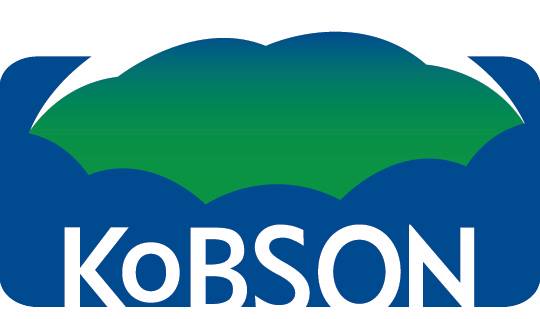DOI: 10.5937/jaes10-2522
This is an open access article distributed under the CC BY-NC-ND 4.0 terms and conditions.

Volume 10 article 241 pages: 227 -233
The paper presents the
results of research of the combination of knowledge in the system: suppliers -
SMEs - consumers in case of SMEs in Eastern Serbia. A theoretical model of a
combination of knowledge was established in the investigated system. By using
the statistical analysis of the results a satisfactory statistical significance
of acquired results was determined, which allowed the testing of the defined
model using LISREL software package. The results show the importance of the
established hypotheses for the impact of the cooperation with suppliers on a
combination of knowledge, as well as the combination of knowledge of customers
and suppliers on the creation of the new knowledge in SMEs. The hypothesis
about the positive influence of the sharing of knowledge with customers on the
combination of the knowledge in SMEs has not been proven. These facts suggest
that SMEs in Serbia do not collaborate with their customers. The cause of such
a situation is the lack of system quality (SQ) in the SME sector in Serbia, as
well as not applying the principles of TQM practices, which provides the best
explanation of the short life cycle of SMEs in Serbia and the inability of
their internationalization.
Acs., Z.J., Dana, L.P., Jones, M., (2003) Toward new horizons: The internationalization of entrepreneurship, Journal of International Entrepreneurship, 1:5-10
Audretsch, D.B., Thurik, A.R., (2000) Capitalism and democracy in the 21st centry: from the managed to the enterpreneurial economy, Journal of Evolytionary Economics, 10: 17-34.
Benzing, C., Chou, H.M., Shabo, B., (2005) Hungarian and Romanian enterpreneurs in Romania - motivation, problems and differences, Journal of Global Busines, 16: 77-87.
Benzing, C., Chu, H.M., Kara, O., ( 2009) Journal of Small Business Management, Enterpreneurs in Turkey: A factor analysis of motivations, Success factors and problems, Journal of Small Business Management 47(1): 58-91.
Bolomstermo, A., Eriksson, K., Lindstard, A., Sharma, D., (2004) The percieved usefulness of network experimental knowledge in the internationalizing firm, Journal of International Management , 10(3): 355-374.
Bou-Luslar, J.C., Escrig - Tena, A.B., Roca- Puig, V., Beltran - Martin, I., (2009) An
Cegerra - Navarro, J., (2007) Linking exploration with exploration through relationship memory, Journal of Small Business Management, 45(3): 333- 354.
Crick, D., Jones, M.V., (2000) Small hightechnology firms and international high - technology markets, Journal of International Marketing, 8(2): 63-85.
Crombach, J.I., (1951) Coefficien aplha and the ingternal structure in tests, Psychomet- rica , 16: 297 - 334.
Dyer, J.H., Nobeoka, K., (2000) Creating and managing a high -performance knowledge - sharing network : the Toyota case, Strategic Management Journal, 21(3):345-368.
Empiriical assessment of the EFQM excellence model: Evaluation as a TQM framework relative to the MBNQA model, Journal of Operations Management, 27 : 1 - 22.
Ho, R., (2006) Handbook univariante and multivariante data analysis and interpretation with SPSS, Central Queensland University Rockhampton, Australia
Jarzabkovski, P. And Wilson, D.C., (2006) Actionable strategy knowledge: A practice perspective, European Management Journal, 24(5): 348-367.
Kale, P., Singh, H., Perlmutter, H., (2000) Learning and protection of proprietary assets in strategic alliances: bulding relational capital, Strategic Management Journal, 21, 217- 237.
Kayank, H., (2003) The relationship betwen total quality management practices and their effects on firm performance, Journal of Operations Management 21(4), 405 - 435.
Knight G.A., Cavusgil, T., (2004) Innovation organizational capabilities and the Bornglobal firm, Journal of International Business Studies, 35(1): 124-141.
Moen, O., (2002) The born globals: A new generation of small European exporters, International Marketing Review, 19: 156 - 175.
Molina, L.M., Montes, L.J., Moreno, A.R., Relathionship betwen quality management practices and knowledge transfer, Journal of Operations Management, 25: 682-701.
Moris, H. DeGroot, Mark S. Schervish (2002) Probabiolity and Statistics, Addison - Wesley, p.485.
Omerzel, G.D., Antoncic, B., (2008) Critical enterpreneur knowledge dimensions for SME performance, Industrial Management & Data systems, 108(9): 1182 - 1199.
Rialp, A., Rialp, J., Knight, G.A., (2005) The phenomenon of early internationalizing firms: what do we know after decade (1993-2003) of scientific linquiry , International Business Review, 14(2):147-166.
Soda, G., Usai, A., Zaheer, A., (2004) Network memory: the influence of past and current networks on performance, Academy of Management Journal, 47(6): 893-906.
Street, C.T., Cameron, A.F., (2007) External relationchips and the small business: a review of small business alliance and network research, Journal of Small Business Management, 45(2): 239 - 266.
Tari, J.J., Molina, J.F., Castejon, J.L., (2007) The realatonship between quality management practices and their effects on quality outcomes, European Journal of Operational Research, 183: 483- 501.
Thorpe, R., Holt, R., Macpherson, A., Pittaway, L., (2005) Using knowledge within small and medium-sized firms : a sistematic review of the evidence, International Journal of Management Reviews, 7(4): 257-281
Tolstoy, D., (2009) Knowledge combination in a foreign-market network, Journal of Small Business Management, 47(2):202-220.
Uzzi, B., Lancaster, R., (2003) Relational emeddedness and learning: the case of bank Loan Managers and thier clients, Management Science, 49(4): 383-399.
Zahra, S.,Matherne, B., Carleton, J., (2003) Technological resource leveraging and the
internalisation of new ventture, Journal of International Enterpreneurship,
1(2): 163- 186.







